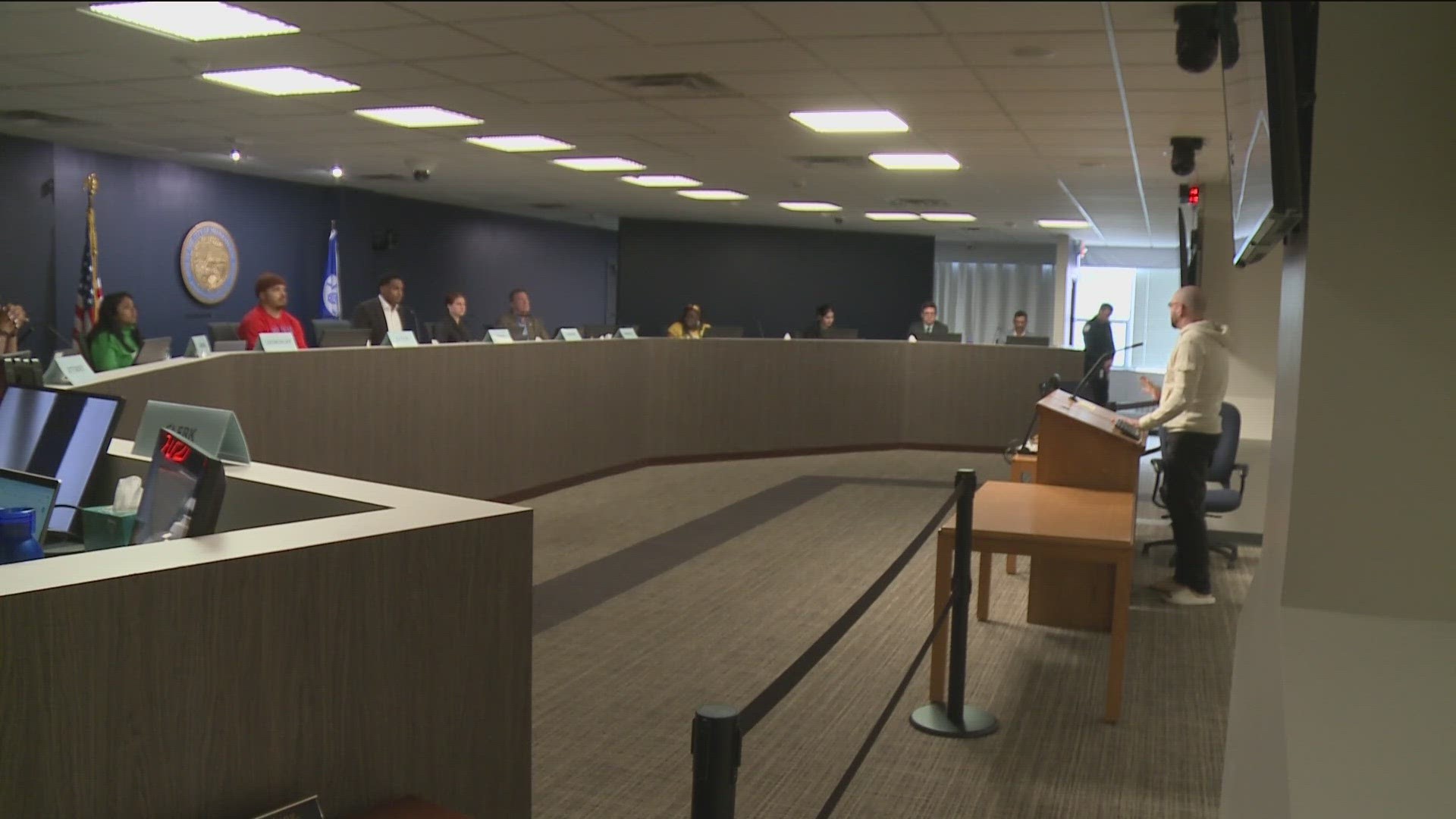MINNEAPOLIS — A proposal that would require rideshare companies to raise minimum driver pay is back on the table in Minneapolis.
The Business, Housing & Zoning Committee voted Tuesday afternoon to advance a plan authored by council members Jason Chavez, Jamal Osman and Robin Wonsley to the full city council for a final vote on Thursday, March 7.
Lyft and Uber are again threatening to leave Minneapolis if it passes. They also said this last year, when council passed a measure setting minimum pay standards for drivers. However, Mayor Jacob Frey vetoed it.
"From the feedback we gathered, it is clear that we must allow more time for deliberation," Frey wrote in a letter at the time. "We need both additional data and conversations to be had to ensure the essential safety and well-being of rideshare drivers and riders alike."
Similarly at the capitol last year, Governor Tim Walz vetoed a rideshare bill but started a state task force instead. That task force met for 6 months and in late December offered a list of recommendations, including that minimum compensation be paid in a per-minute, per-mile format. "At a minimum, compensation should be $5 for any transportation of a rider by a driver," the report reads.
Minneapolis' proposal would require rideshare companies to pay drivers at least $1.40 per mile and $0.51 per minute, or a minimum $5 per ride while working within city limits. It would also require the companies to give drivers 80% of fees collected for canceled trips.
Dozens of people spoke at a public hearing before the vote, including State Sen. Omar Fateh (D-62, DFL) and various rideshare organizations. All of the speakers expressed support for the plan.
"We drive when there's 6 inches of snow out, we drive when we take a customer to Mayo or to Rochester, we drive when we have to take a customer to Duluth, so we need the city of Minneapolis to stand up for us," said one Minnesota Uber/Lyft Drivers Association member with more than 10,000 Lyft rides under his belt.
"If you have to drive 30 miles to pick up someone to make $5, if you do the math it's not worth it," another driver added.
Nondrivers also spoke in support.
"Pull out of the city, I don't see that happening, and even if it did, I don't believe we should be afraid of the task of building community grounded alternatives," he said.
Monday, several organizations sent letters urging council not to pass the ordinance, including the Chamber of Progress, Minnesota Hospitality, Minnesota Licensed Beverage Association and MPLS Downtown Council. They expressed concern over increased costs for riders, which they say would reduce availability of rideshare services and overall driver earnings.
"The proposed policy would raise the cost of rideshare for riders, with disproportionate impacts on lower-income Minneapolis riders," MPLS Downtown Council President and CEO Adam Duininck wrote, adding that 56% of Lyft rides in the Twin Cities start or end in low-income areas. "Higher-income riders will likely be less sensitive to cost increases, but we are concerned that the proposed policy would turn rideshare into a benefit for wealthy residents and hurt low-income riders."
Tuesday's vote was 5 to 1, with council member Michael Rainville voting no.
Lyft and Uber sent KARE 11 these statements in response to the proposed ordinance:
“In the past few weeks alone, we have announced several new steps to improve driver earnings and transparency. This includes just this month announcing a new earnings commitment where drivers will always make at least 70% of the weekly rider fares after external fees. This is how we can improve driver earnings in a smart and deliberate way. The Council’s proposed bill, however, ignores economic reality. It pushes the same egregious mandates that were vetoed by the Mayor last year, and it could make rides on Lyft too expensive for too many. Should it become law, Lyft would be forced to cease operations in Minneapolis and possibly the rest of the state when it takes effect.”
-Lyft
"The proposed rates mean much higher prices for riders and less work and pay for drivers. After a period of near record inflation there aren’t many governments out there whose big idea is to make things more expensive. We have numerous concerns with the legislation which would force us to cease operating a transportation network company. The Governor’s task force put forward a comprehensive statewide proposal and we look forward to continuing working with the legislature on getting that passed this year."
-Uber
Watch more local news:
Watch the latest local news from the Twin Cities and across Minnesota in our YouTube playlist:

